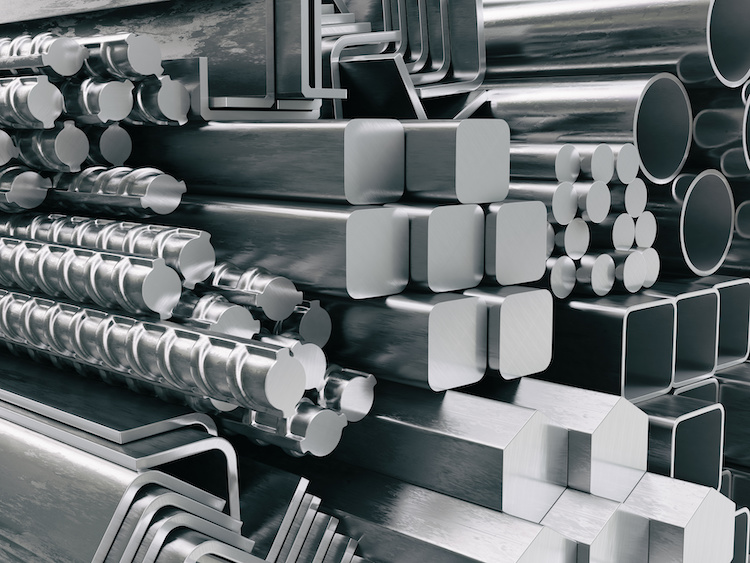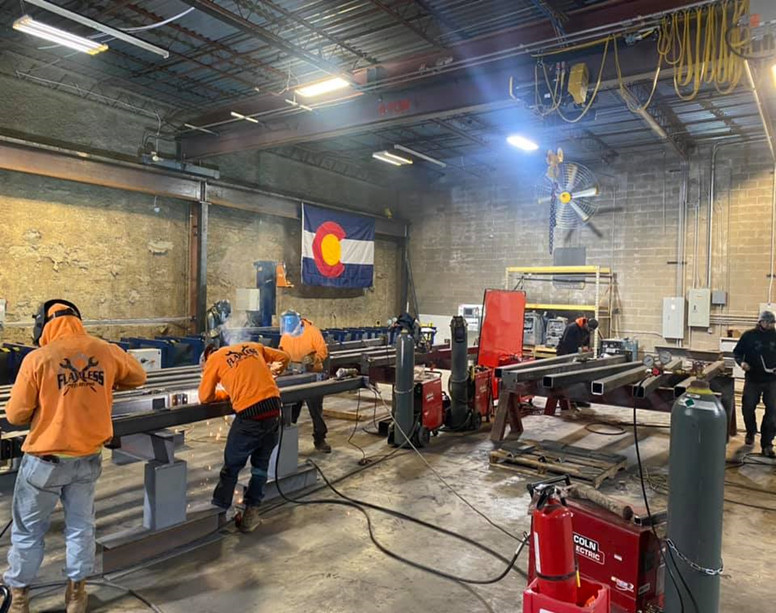Dependable Steel Fixing Providers: Making Sure Structural Honesty
Dependable Steel Fixing Providers: Making Sure Structural Honesty
Blog Article
The Ultimate Handbook on Custom Steel Manufacture Solutions for Structural Projects
In the world of architectural jobs, the value of custom-made steel construction solutions can not be overstated. From the fundamental understanding of steel fabrication fundamentals to the elaborate procedure of picking the most suitable products, every action in this journey plays a pivotal role in the supreme success of a task. As we navigate with the intricacies of design factors to consider, construction procedures, and quality assurance measures, a detailed handbook works as a directing light for specialists looking for quality in steel manufacture options. Keep tuned to uncover the understandings that can reinvent the way structural jobs are approached and executed.
Recognizing Custom Steel Fabrication Essentials
Digging into the principles of custom steel manufacture offers insight into the elaborate process of changing raw steel right into tailored architectural parts. Custom-made steel construction is a specific production method that entails cutting, shaping, and putting together steel materials to develop one-of-a-kind frameworks according to certain job requirements. Recognizing the essentials of custom steel construction is critical for making certain the successful implementation of architectural projects.
The process generally starts with the evaluation of task specs and layout needs. This preliminary phase entails in-depth preparation and cooperation between designers, fabricators, and designers to determine one of the most ideal technique for fabricating the steel components. Accuracy is essential throughout the construction process, as also minor inconsistencies can affect the structural honesty of the end product.
Various techniques, such as reducing, welding, and shaping, are used to transform raw steel into the preferred architectural components. Proficient makers utilize advanced machinery and tools to guarantee precision and consistency throughout the construction process. Quality assurance procedures are implemented to verify the honesty of the made parts before they are put together on-site, guaranteeing conformity with market standards and job specifications.
Selecting the Right Steel Products

Primarily, the type of architectural job and its certain requirements play a critical function in figuring out one of the most suitable steel materials. Elements such as the load-bearing capacity, environmental conditions, and wanted lifespan of the framework will dictate the grade and sort of steel that need to be utilized.
Additionally, the physical properties of the steel, including weldability, ductility, and strength, should straighten with the job's needs to assure optimal efficiency and longevity (steel fixing). In addition, considerations such as corrosion resistance, cost-effectiveness, and availability of the steel materials should also be taken right into account throughout the selection process
Layout Factors To Consider for Architectural Jobs
Structural tasks demand precise interest to design considerations to make certain both functionality and security are focused on throughout the construction procedure. Numerous key factors have to be taken right into account to guarantee the success of the undertaking when it comes to designing architectural projects. The architectural integrity of the building must be a leading concern. This entails analyzing lots, stresses, and ecological variables to determine the most ideal design that can hold up against different problems with time. Furthermore, considerations for the performance of the structure play an important function in the design process. Understanding the function of the structure and just how it will certainly be used aids in creating a layout that takes full advantage of performance and usability. Including aspects that improve the looks of the structure can even more elevate the general style. Balancing visual appeal, security, and functionality is vital in producing effective architectural tasks that satisfy both functional and aesthetic needs. By carefully thinking about these elements during the style stage, designers and designers can guarantee the architectural task's success from perception to completion.
Improving Construction Processes for Efficiency

In addition, applying lean production concepts can dramatically improve efficiency in steel fabrication. By minimizing waste, have a peek at this site optimizing operations, and boosting interaction in between various groups associated with the fabrication procedure, tasks can be finished more promptly and with better standards.
Additionally, developing an efficient production routine and process can assist in focusing on tasks, appointing sources effectively, and meeting task due dates quickly. By having a clear plan in position and regularly monitoring progression, any type of potential bottlenecks or hold-ups can be determined and attended to promptly, ensuring effective and smooth construction procedures for structural tasks.
Quality Assurance and Job Monitoring in Steel Fabrication
To make certain the effective implementation of steel manufacture jobs, precise quality assurance procedures and effective task management techniques are important elements in preserving accuracy and conference customer expectations. Quality control in steel fabrication involves rigorous evaluations at different phases of the manufacture process to validate compliance with task specifications and industry criteria. This includes product screening, dimensional checks, and weld examinations to guarantee architectural honesty and security.
Task administration plays an essential duty in collaborating the various aspects of steel manufacture projects, such as scheduling, source allowance, and communication among employee. A well-defined project plan with clear goals, turning points, and timelines helps to keep an eye on progression and resolve any type of prospective problems proactively. Effective interaction in between all stakeholders, consisting of clients, makers, contractors, and designers, is important for guaranteeing that the task proceeds efficiently and fulfills the desired high quality criteria.
Final Thought
In final thought, personalized steel fabrication plays an important duty in structural projects by giving customized solutions utilizing the appropriate products and style considerations. Performance in fabrication processes, quality assurance, and reliable project administration are important for effective outcomes. By recognizing the basics of customized steel manufacture and carrying out structured procedures, job teams can supply high-grade and sturdy frameworks that meet the details demands of their customers.
Custom steel construction is a specialized production technique that entails cutting, shaping, and assembling steel products to produce special frameworks according to details job requirements.To ensure the effective execution go to my site of steel manufacture tasks, meticulous quality control actions and efficient project management techniques are essential components in keeping accuracy and meeting customer expectations. Quality control in steel manufacture entails extensive evaluations at numerous stages of the fabrication process to confirm compliance with task specifications and market requirements (steel fabrication melbourne).Task administration plays an important role in collaborating the various elements of steel construction tasks, such as scheduling, resource allowance, and interaction among group participants.In final thought, customized steel manufacture plays a vital duty in structural tasks by offering tailored solutions using the right products and style factors to consider
Report this page